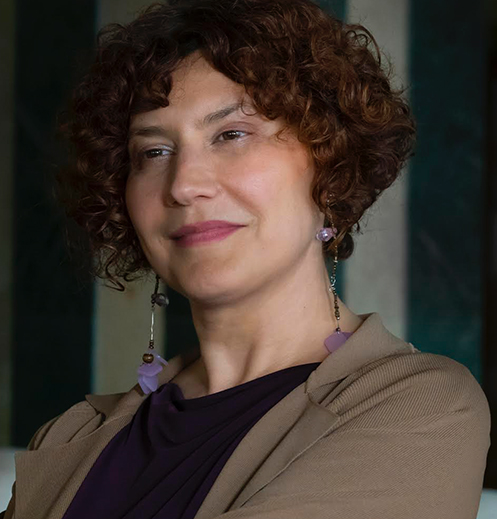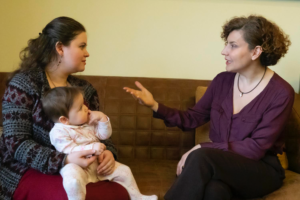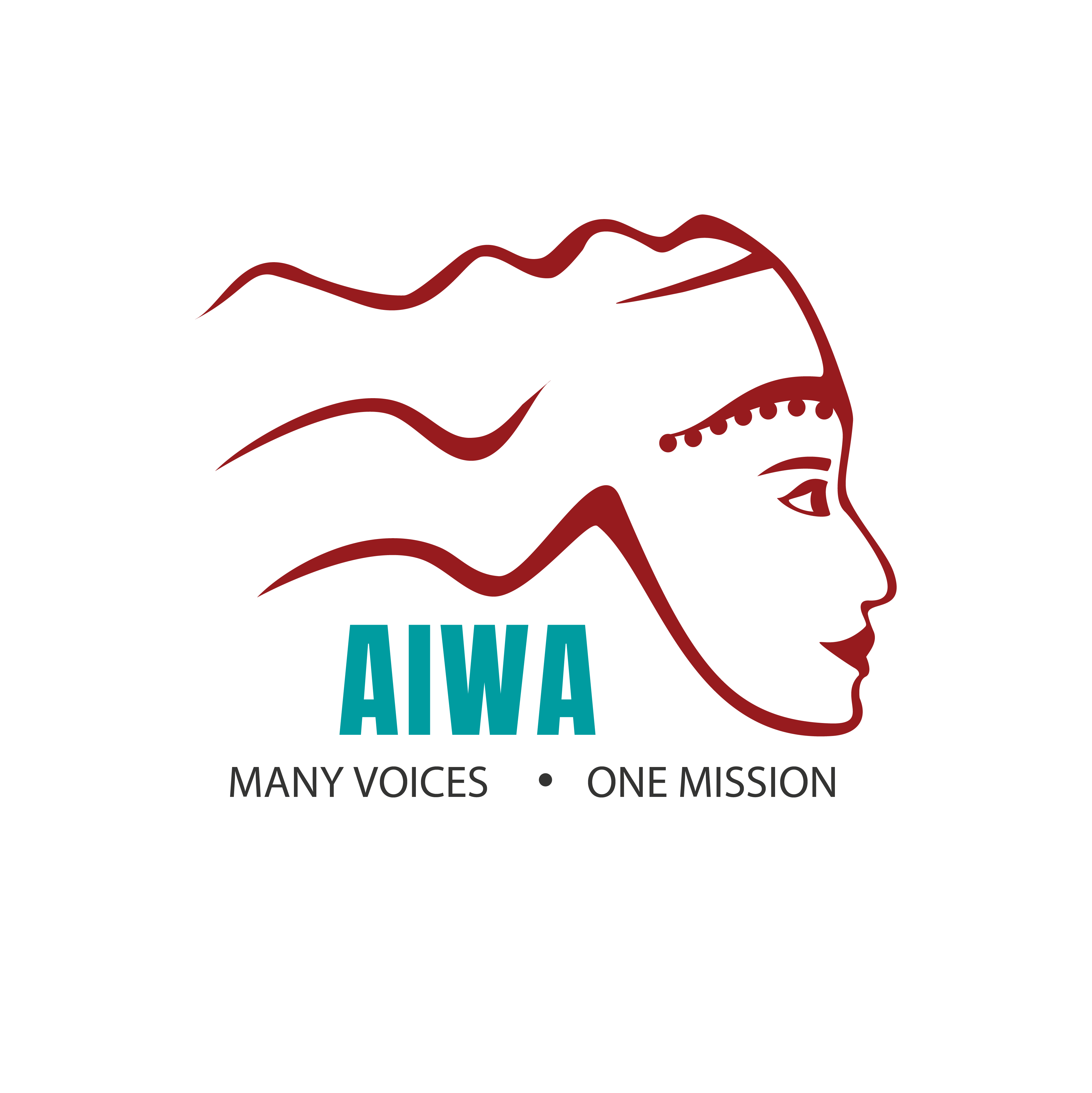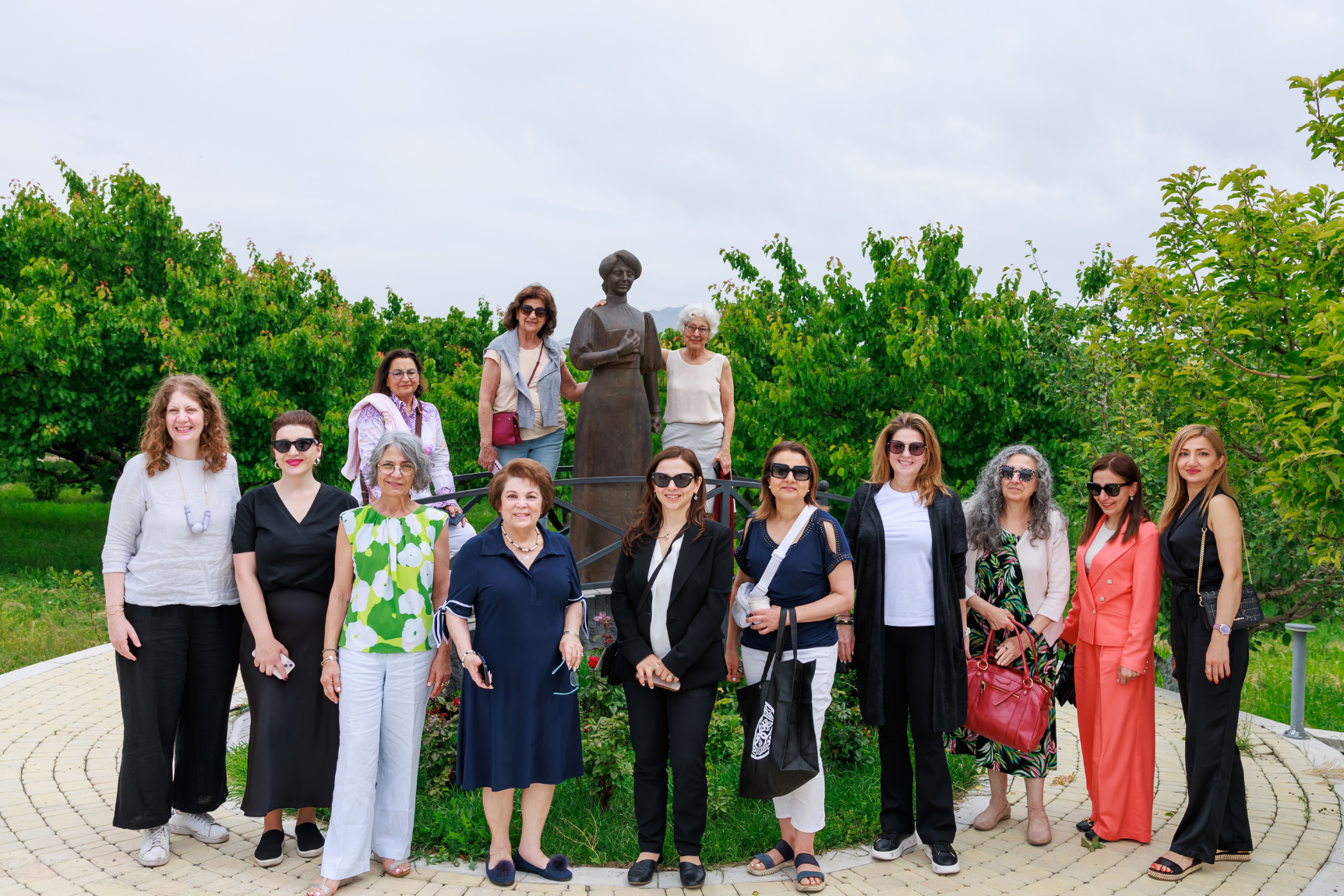
When Astrik Vardanyan gave birth to her first son in 1998, the experience she had in a Burbank, CA hospital left her scarred physically and mentally, humiliated, and traumatized. It was not the childbirth experience she had prepared for or dreamt of. At that time, the dehumanization she felt in the service of a clinical technological birth and the lack of autonomy she felt over her own body was shocking to her. After experiencing similar inhumane treatment during the birth of her next two sons and complications with their health because of it (her second son was heavily drugged to the point where he failed to respond for hours – they thought he was deaf or worse). She realized, perhaps, this was a bigger problem in the world than she had thought. In 2005, along with her late husband, child psychiatrist, Arthur Pogosyan, Astrik founded the haikProject to educate and support women in labor and establish healthy, peaceful, non-violent child birthing.

Astrik asserts the fact that women know how to birth. The role of medical personnel is to keep an eye on the birthing process and ensure no pathology is present, but it has to be a low profile intermittent monitoring. The key is to give space to the mother to go inward in this meditative process to produce the hormones melatonin and oxytocin to ensure a fast and safe birth.
Astrik, a Medical Anthropologist, calls herself, “a consumer advocate for the rights of laboring and birthing mothers. Currently, I’m working in Armenia to advance maternity care through a series of reforms. I’m hoping to work with policy makers to have certain rules and regulations as well as policies in place. Almost 10% of women are reported as having PTSD after giving birth. For something that should be a transformative experience, [10% is] a large percent and says what is happening in hospitals where most births happen. In a small country like Armenia where the birth rate is 12%, this becomes a problem if women who have negative or violent experiences during labor choose to not have more children.”
At Astrik’s recent seminar in Yerevan, eight doctors attended as well as yoga instructors, people in the healthcare business and chief doctors from some of the main hospitals. Lack of evidence based care, lack of compassion, and lack of respect of the human race are all highlighted by the World Health Organization as problems in the contemporary delivery room.
“Change happens quickly in a small country,” Vardanyan says with a smile. It’s a knowing and playful smile that packs a lot of power. The kind of smile that makes you feel hopeful. However, it’s the plans and actions of Astrik Vardanyan and haikProject along with other groups that will really make change happen. Astrik continues her work with birthing women, holding seminars, making a documentary film, and brainstorming for a birthing center in Armenia.
Astrik wants to emphasize that her end goal is not simply to give a lecture, write articles, make a documentary, and leave without seeing tangible improvements. She wants to see improvements in governmental policy reform and seeks to ensure developed facilities in Armenia are prepared to properly train midwives, doulas, and doctors to carry out these changes.
“The same environment that is created for lovemaking–privacy, silence, safety, semi-darkness, is also optimal for the passage to life for the baby!” Astrik asserts, “Similar environments and similar hormones are at play! I always tell my clients, lovemaking is the prelude, pregnancy is the interlude, and birth is the postlude! It’s a one big love story and we have to honor and respect each and every part of it. And if we don’t, it turns into rape, obstetric violence and child abuse! That’s the antithesis of love!”
It is safe to say, the time has come for Armenia to look into the ways the next generation comes to life, through gentle, loving and caring hands.
For more information or to reach Astrik Vardanyan and haikProject go to: www.haikproject.com.





